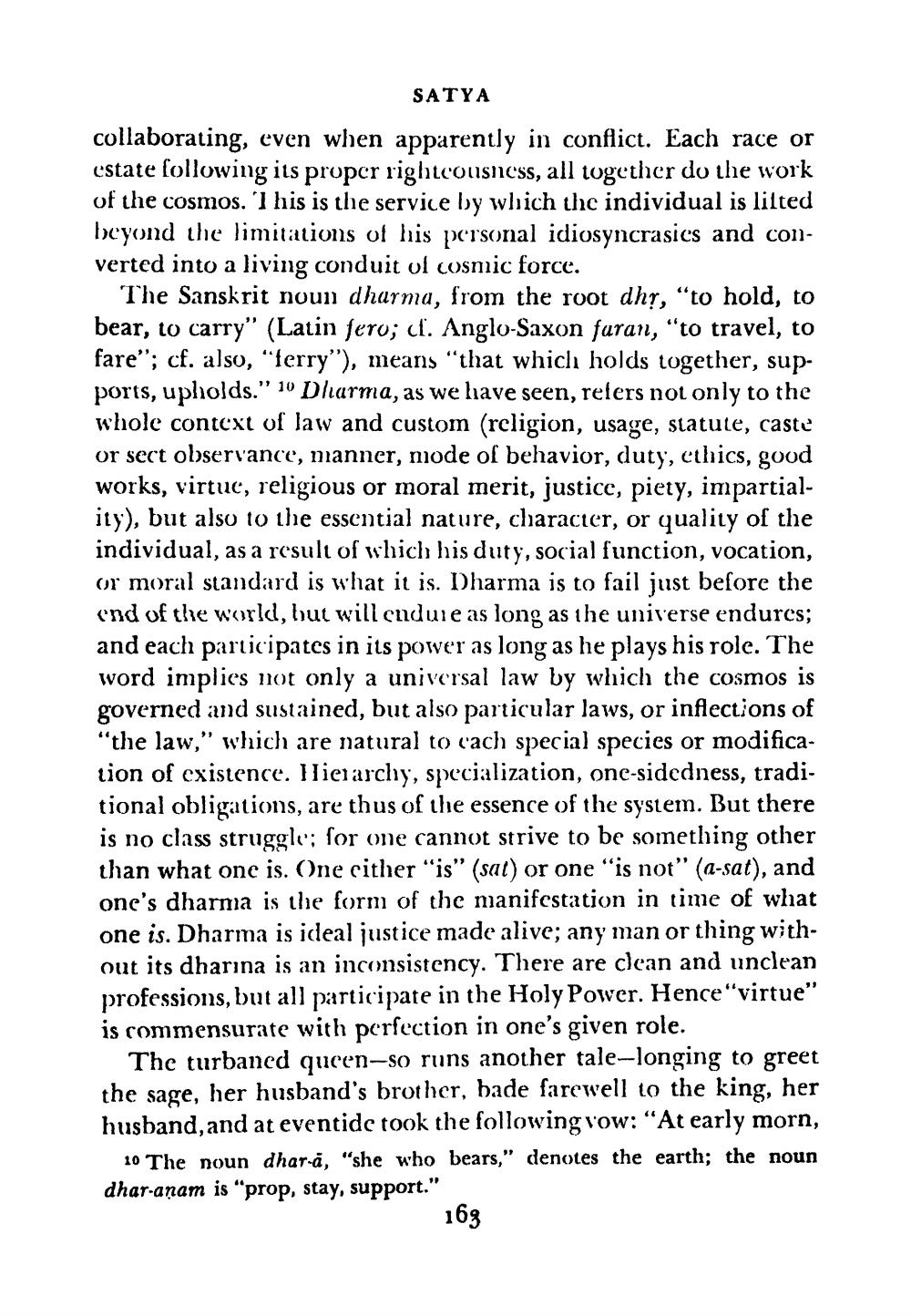________________
SATYA
collaborating, even when apparently in conflict. Each race or estate following its proper righteousness, all wgether do the work of the cosmos. This is the service by which the individual is listed beyond the limitations of his personal idiosyncrasics and converted into a living conduit of cosmic force.
The Sanskrit noun dharma, from the root dhị, “to hold, to bear, lo carry” (Latin fero; cf. Anglo-Saxon furan, "to travel, to fare"; cf. also, “ferry'), means "that which holds together, supports, upholds." 10 Dharma, as we have seen, refers not only to the whole context of law and custom (religion, usage, statute, caste or sect observance, manner, mode of behavior, duty, ethics, good works, virtue, religious or moral merit, justice, piety, impartiality), but also to the essential nature, character, or quality of the individual, as a result of which his duty, social function, vocation, or moral standard is what it is. Dharma is to fail just before the end of the world, but will endure as long as the universe endures; and each participates in its power as long as he plays his role. The word implies not only a universal law by which the cosmos is governed and sustained, but also particular laws, or inflections of "the law," which are natural to cach special species or modificalion of existence. Hierarchy, specialization, one-sidedness, traditional obligations, are thus of the essence of the system. But there is no class struggle; for one cannot strive to be something other than what one is. One cither "is" (sal) or one "is not" (a-sat), and one's dharma is the form of the manifestation in time of what one is. Dharma is ideal justice made alive; any man or thing without its dharina is an inconsistency. There are clean and unclean professions, but all participate in the Holy Power. Hence"virtue" is commensurate with perfection in one's given role.
The turbaned qucen-so runs another tale-longing to greet the sage, her husband's brother, bade farewell to the king, her husband, and at eventide took the following vow: “At early morn,
10 The noun dhar-a, "she who bears," denotes the earth; the noun dhar-aņam is "prop, stay, support."
163




